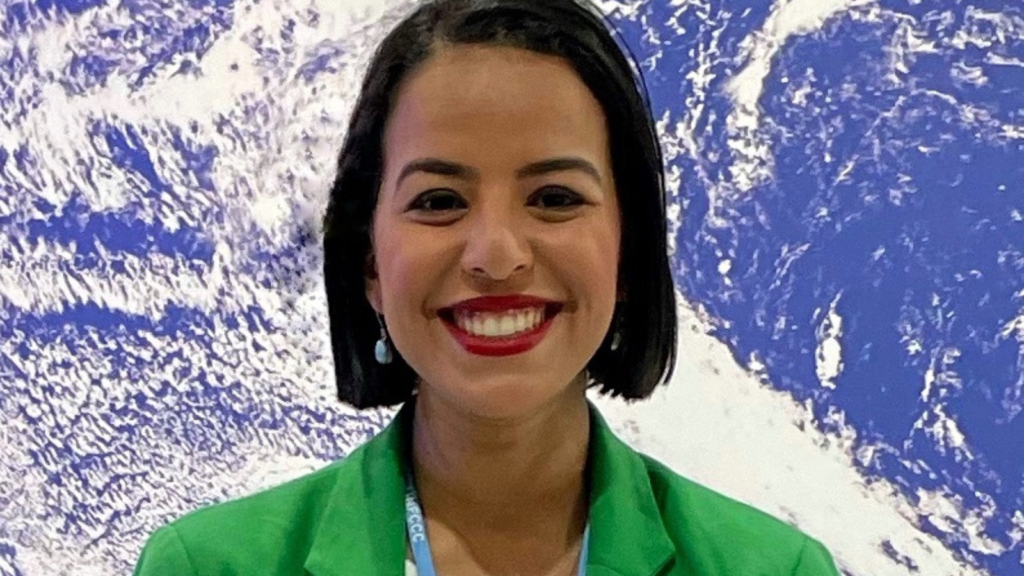On November 4, 2022, unprecedented rainfall devastated the Dominican Republic. The public sector did not do enough to protect individuals whose lives were placed in danger. This resulted in four deaths that could have been prevented.
We thought that those dismal memories were in the past, but on the morning of November 19, just a few days later, the Dominican community awoke to disconcerting news: more than 20 people were killed by a tropical storm that passed through the country between November 17 and 18.
As a result, the country requires more than USD $140.6 million to recover from the economic losses and damages wrought by this phenomenon alone.
The Caribbean represents an alarming reminder that warns us of the disproportionate impacts of climate change if we fail to implement equitable energy policies not only in the region but throughout the rest of the world. The Dominican Republic and other countries in the region are falling behind.

Not quite developed enough to be safe and not quite developing enough to access comprehensive funding, the Dominican Republic’s status as one of the most vulnerable small island states to the effects of climate change continues to be relegated to the back burner.
Now, with one of the most watched Conferences of the Parties behind us, the world can both appreciate the progress made and be concerned for what remains to be done.
The remaining question is: Where did COP leave us? There are a number of contrasts that have left everyone scratching their heads.
On the one hand, COP28 bookended our world’s hottest year to date, burgeoning increasingly numerous and volatile natural phenomena that continue to decimate vulnerable countries’ capacities to address them with each year that world leaders commit to inaction.
On the other hand, deforestation of Brazil’s Amazon forest fell by nearly 50% in 2023 compared to 2022, showcasing one of the year’s most powerful examples of meaningful climate and environmental leadership.
And yet, it would appear that darkness and light will continue to dance around each other in a never-ending skirmish to vanquish one another.
Since October 7, we have witnessed the deaths of more than 32,200 Palestinians, the loss of 60% of homes in Gaza, and the displacement of over 85% of Gaza’s inhabitants, resulting in a ruthless degree of humanitarian and environmental collapse.
With the number of protracted conflicts increasing almost every week, we as journalists are obliged to share the truth, defend human dignity, and safeguard our planet by using our words, platforms, and connections with both like-minded and dissenting voices.
Just as 2023 marked a year in which despair and hope stood in direct opposition, we must think back on the lessons learned and how we can do better in spite of overwhelming shortcomings.
While celebrating the victory of the operationalization of the loss and damage fund, we must not forget that the world is far from properly funding it. Upon COP28’s conclusion, countries pledged US$700 million, an astonishing 0.2% of the amount needed to fully redress the US$400 billion in losses developing countries face each year.
What does equity mean in each of our communities, and what are the funding opportunities available to close that gap? As a citizen of the Dominican Republic, I will strive to voice concern over how my country, in the shackles of its classification as a “middle-income” country, no longer qualifies for most non-refundable development assistance. This, in turn, exacerbates many of its preexisting challenges and condemns a sizable part of its vulnerable population to even higher degrees of intergenerational poverty and injustice.
In 2024, I hope we all remember that nothing is louder than silence or more powerful than empathy. Following the conclusion of this fellowship, I invite you to listen to your country’s most vulnerable communities, and rather than speaking for them, pass them the microphone and let them be the champions of their own causes. They needed these platforms more than many of us do, and it is our job as journalists to ensure they are at the forefront of environmental justice and human rights everywhere.
This story was published with the support of the Caribbean Climate Justice Journalism Fellowship, which is a joint venture of Climate Tracker and Open Society Foundations.